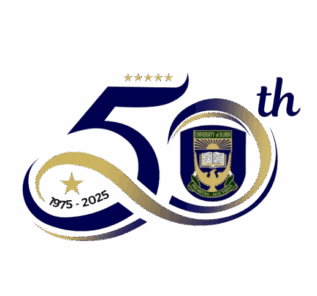By Mustafa Abubakar and Joshua Ishaya
A former Deputy Vice Chancellor (Academic) of the University of Ilorin, Prof. Raheem Adebayo Lawal, has called for purposeful educational reforms as he cautioned Nigerians against equating literacy with education.
Prof. Lawal made the call last Thursday (September 11, 2025) while featuring on a radio programme organised by the National Association of Sea Dogs (NAS) as part of the 2025 International Literacy Day, themed “Promoting Literacy in the Digital Era: Bridging the Gap through Mass Literacy”.
According to him, literacy must be understood as the foundation for continuous learning.
“It is after you learn to read that you can read to learn. You can be literate without being educated, but literacy enables education and lifelong learning,” he explained.
The don warned that Nigeria faces a deeper crisis from what he described as “higher illiterates.”, saying that, while “lower illiterates” are those who cannot read or write, “higher illiterates” are individuals who possess reading and writing ability but fail to use such skills for critical thinking, creativity, and problem-solving.
Prof. Lawal further said, “When literacy cannot be used to think critically and solve problems, then literacy is not functional,” noting that such higher illiteracy can be found even among postgraduate students and in leadership circles.
He stressed that “the world shapes those who cannot read,” adding that those cut off from functional literacy are easily misled.
Prof. Lawal further argued that Nigeria’s repeated attempts at curriculum reform have produced little impact because they lacked clear direction.
“Our curriculum reviews have been like two steps forward and one step backwards,” he said, lamenting that the reforms have failed to provide a defined purpose for education.
He, therefore, called for deliberate and purposeful reform that aligns literacy and education with national goals.
Citing Singapore’s transformation under Lee Kuan Yew, Prof. Lawal observed that the country’s rise to first-world status within thirty years was possible because of clearly defined educational objectives.
“Singapore’s model of ‘education for thinking hands’ was a deliberate focus on functionality and purpose,” he explained, urging Nigeria to learn from that model.
The renowned educationist stressed that literacy should not be limited to English alone, pointing out that children who are literate in their indigenous languages can help transfer knowledge to their families and communities.
He also encouraged Nigerians to embrace the principle of “each one, teach one” as a means of spreading literacy at the grassroots.
Reflecting on the United Nations Sustainable Development Goal (SDG)-4, which promotes inclusive and equitable quality education, Prof. Lawal noted that literacy is a collective responsibility that requires coordinated efforts across different levels of society.
